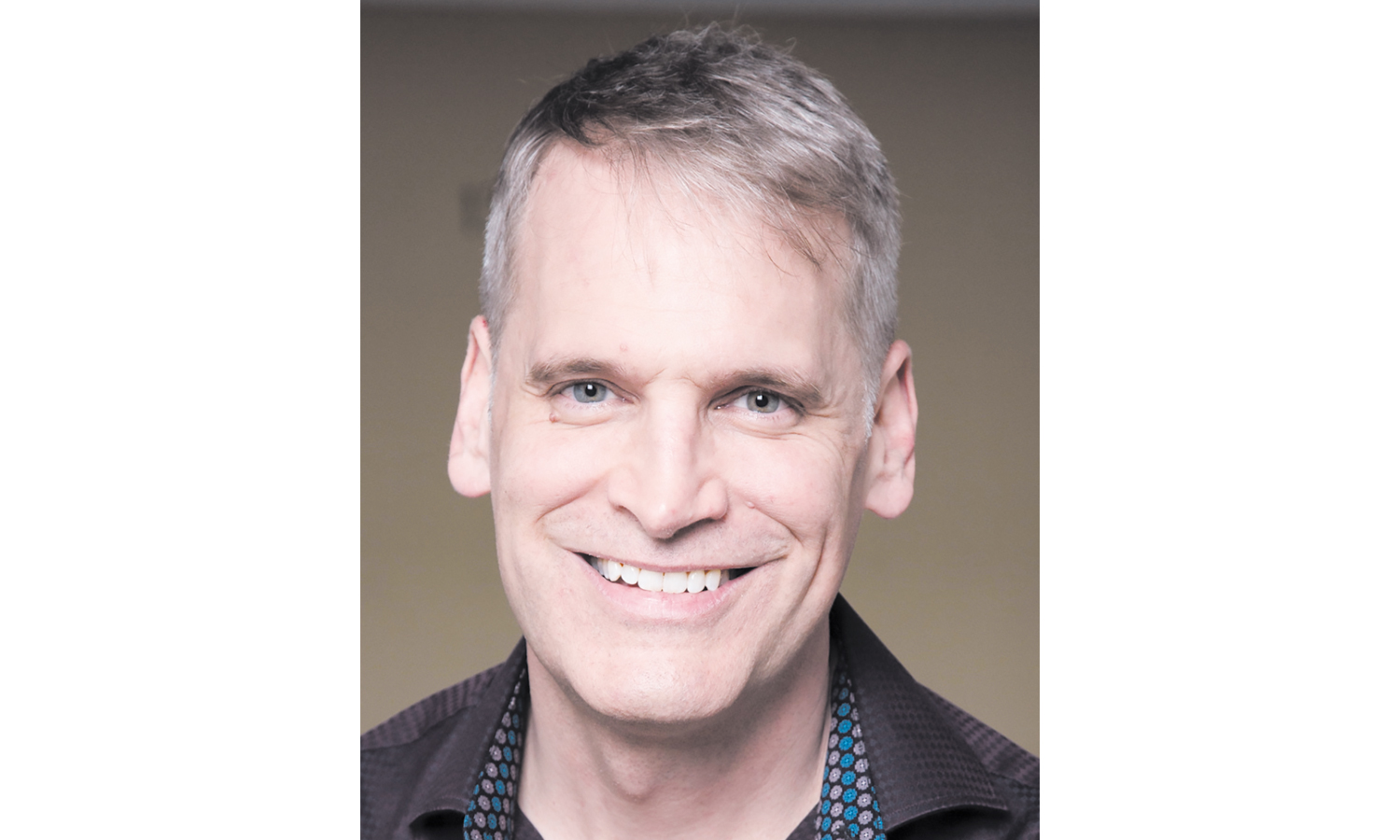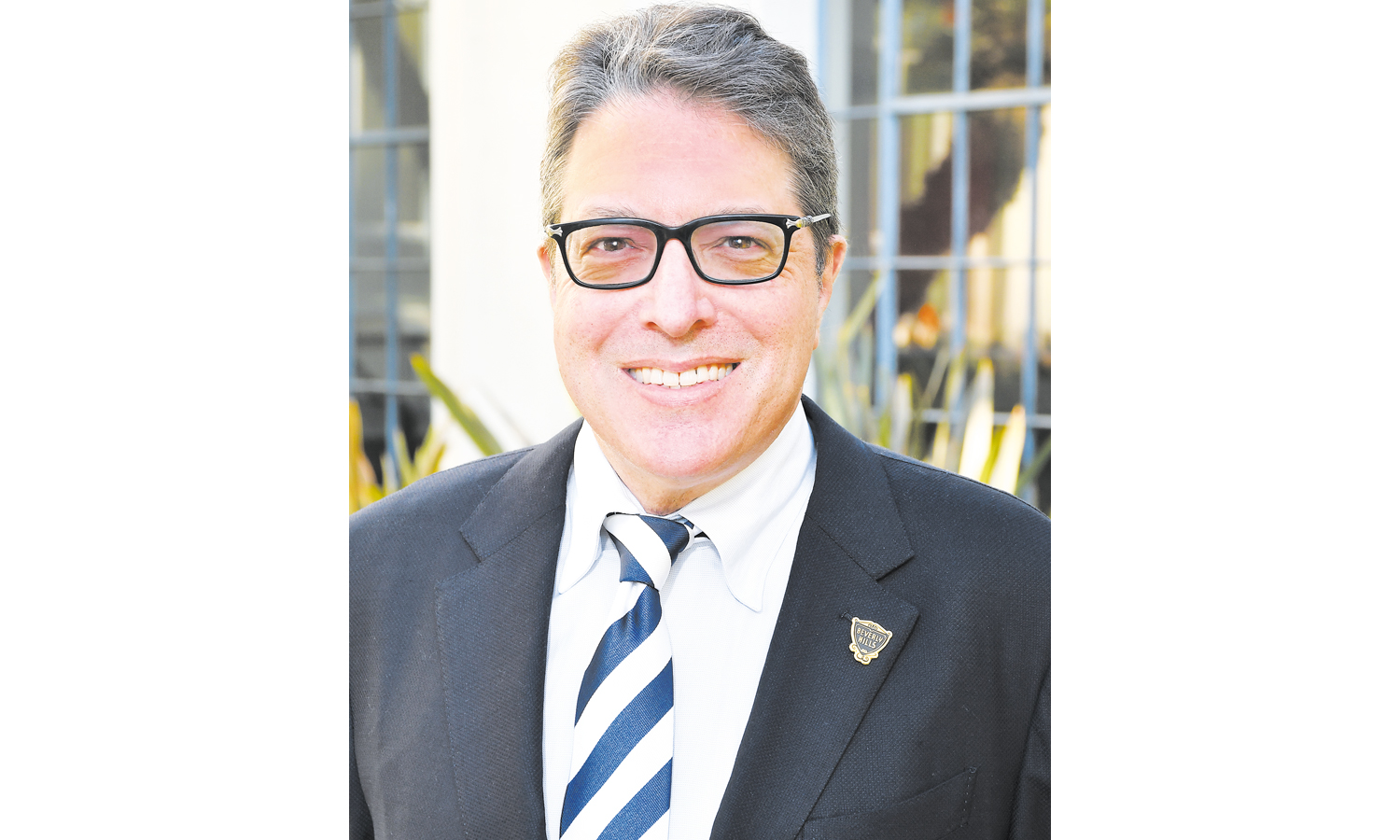In this second of a two-part series, candidates for Beverly Hills City Council answer a series of four questions for publication. Two of those questions were directed to all of the candidates; two were addressed to the incumbents (Councilmembers John Mirisch, Lester Friedman and Robert Wunderlich); and two to the challengers (Commissioners Andy Licht and Sharona Nazarian; Vera Markowitz, Shiva Bagheri, Akshat “A.B.” Bhatia, Darian Bojeaux, Kevin Kugley and Robin Rowe).
All of the candidates submitted responses, which have been presented in an order determined by random drawing. Last week, the Courier published responses from Councilmembers Lester Friedman and Robert Wunderlich; Challengers Vera Markowitz, Robin Rowe, Darian Bojeaux, and Akshat “A.B.” Bhatia. This week features the remaining candidates: Councilmember John Mirisch; Commissioners Andy Licht and Sharona Nazarian; and Shiva Bagheri and Kevin Kugley.
We also asked about the state mandate to zone for more than 3,000 new units over the next eight years under the Regional Housing Needs Assessment, a controversial requirement that has put local governments across California in a bind. Finally, we asked incumbents to reflect on their handling of the prior two years of turbulence and the relationship between the City Council and the police department, which has found itself in headlines repeatedly in the last few years. Challengers were asked to justify their candidacies–the life experiences that makes them fit for office and the specific policies or decisions of the previous City Council that they disagreed with. While this space is inadequate for all the questions and answers necessary to make an informed decision on June 7, we hope it adds to the growing body of data for Beverly Hills voters as they continue to weigh their options.
The order in which the candidate’s responses appear was selected by random drawing. The Courier did not edit any responses.

Andy Licht
Courier: The challenges currently facing the City of Beverly Hills have generated much discussion. The community is looking for solutions. Please identify the three issues you find most vexing and explicate the solutions you would propose for each.
Licht: The surge in crime can’t be solved by Beverly Hills alone. While we must do more to make the City safer we must recognize that the criminals are coming to our City from other cities. BH needs to become more active in getting the leaders of other cities and the County to do more to solve issues like lack of educational resources, job opportunities, adequate housing and drug use. We need to prosecute those that do commit crimes. This current experiment isn’t working.
Homelessness is a regional issue and Beverly Hills must take a leading role in solving it. We must work with collaboratively with neighboring cities and together figure out long-term solutions instead of temporary band-aid fixes that don’t address the root causes of homelessness.
Attracting more businesses – Beverly Hills is a wonderful place to live, and we need to make sure it’s a wonderful place to do business. One thing most everyone agrees upon: our police, fire and blue-ribbon schools depend on the funding generated by our business community. It makes sense to support and encourage more businesses to our City. During this post-pandemic recovery time, it’s important that City Council does everything they can to eliminate red tape and make permitting processes easier for businesses that want to expand outside (particularly outdoor dining) so that they can continue to operate safely. As someone that has worked on these issues as Chair of the Planning Commission, I’m uniquely qualified to address these matters.
Courier: Beverly Hills is under a mandate to zone for more than 3,000 new units over the next eight years. To date, the city’s response to this Housing Element requirement has not been approved. What does your idea of compliance look like? In your response, please touch upon the role that the city’s Mixed-Use ordinance could/should play in meeting the Housing Element mandate.
Licht: We are not going to solve this problem by screaming at Sacramento legislators. As a member of the planning commission, I helped enact a change to the municipal code that allows for mixed-use developments in the City. These types of developments will greatly help the City to meet the Housing Element requirement. This becomes even more important with the arrival of the subway we can now encourage transit-oriented development, which is much more efficient in many ways. To reiterate, I think it’s even more important to have someone with my unique experience as both Chair of the Traffic & Parking Commission and the Planning Commission servicing on City Council as we make these extremely important and long-reaching decisions. I have this expertise and I will be able to make a substantial contribution to this important issue.
Courier: You feel that you deserve a spot on the Beverly Hills City Council. What relevant experience, tested abilities and credentials do you bring to the table that the current incumbents or other challengers do not possess? Why would your presence on the City Council provide a better mix of talent on that body? WE WILL NOT PRINT ANYTHING IMPOLITE, but if you feel that your qualifications surpass those of other specific candidates, you may address that topic.
Licht: EVERYBODY HAS GOOD IDEAS, BUT I HAVE A PROVEN TRACK RECORD OF GETTING THINGS DONE! My experience on the two most important City Commissions, The Traffic & Parking and The Planning Commissions, has given me the insight to understand what it takes to make policies that will make our city safer and better, but my experience in the private sector is also important. I have the unique set of skills of being successful both in business and in government. That experience will allow me to make a substantial contribution to the City Council from Day One.
Courier: Are you running because you don’t approve of the performance of the current City Council? If so, please point to a particular decision or initiative–or lack thereof– that you disagree with. If you are running for any other reason, please elaborate. (It is ok to say that you are running because you simply think it is time for a change, or because you always wanted to hold elective office.) We want to understand what is motivating you to take this move.
Licht: I became a successful film producer because I can bring various groups together and produce successful projects on time and on budget. Those types of skills will be very useful on the City Council. I will make responsible decisions on resident’s behalf even when they are not in the room. I am running for my love of Beverly Hills.

Kevin Kugley
Courier: The challenges currently facing the City of Beverly Hills have generated much discussion. The community is looking for solutions. Please identify the three issues you find most vexing and explicate the solutions you would propose for each.
Kevin Kugley: Beverly Hills is under constant attack by criminals and the current City Council is not adequately addressing crime. Hiring security guards (that lack arrest authority) and relying on a County District Attorney clearly didn’t work. Perpetrators need to know that when they are arrested by Beverly Hills police officers, they won’t be let out the next day. Therefore, I would create a City Prosecutor’s office to the job that the County DA won’t.
a. The City Council was overly tough on small business during the Pandemic. Instead of helping, they used the business development department to harass and cite the few open businesses. And they are still overly tough, with the Beverly Hills Business tax currently 7 times higher for some industries than others. City Council needs to support small business and I will bring equality to local taxation.
b. As I began campaigning, it became very clear that the Beverly Hills residents and businesses were very unhappy with the actions and directions of the current City Council. There is an overwhelming feeling of disconnection. People should feel their voices are heard ALL year round… not just at election time.
Courier: Beverly Hills is under a mandate to zone for more than 3,000 new units over the next eight years. To date, the city’s response to this Housing Element requirement has not been approved. What does your idea of compliance look like? In your response, please touch upon the role that the city’s Mixed-Use ordinance could/should play in meeting the Housing Element mandate.
Kugley: I support the mixed-use ordinance on Robertson and other areas that are appropriate. I generally support One Beverly Hills, but it is important not to destroy the existing village atmosphere. However, I don’t support tearing down single-family units for multi-family units. I also support subsidizing housing for police officers. The community wants officers to live in the neighborhood. Unfortunately, most live over 30 miles away.
Courier: You feel that you deserve a spot on the Beverly Hills City Council. What relevant experience, tested abilities and credentials do you bring to the table that the current incumbents or other challengers do not possess? Why would your presence on the City Council provide a better mix of talent on that body? WE WILL NOT PRINT ANYTHING IMPOLITE, but if you feel that your qualifications surpass those of other specific candidates, you may address that topic.
Kugley: I live and work in the real world. I’m not a politician. I’m one of the few candidates not currently on the City of Beverly Hills payroll. This makes me a candidate of the people, for the people… not a politician that exists mainly in the pocket of large developers and big business. As a successful small businessman, I can provide some desperately needed fresh perspectives on the Council.
Courier: Are you running because you don’t approve of the performance of the current City Council? If so, please point to a particular decision or initiative–or lack thereof– that you disagree with. If you are running for any other reason, please elaborate. (It is ok to say that you are running because you simply think it is time for a change, or because you always wanted to hold elective office.) We want to understand what is motivating you to take this move.
Kugley: I am running to repair the damage due to the Council’s overall lack of fortitude during the pandemic… that destroyed businesses and continues to drive the worst crime ever seen in Beverly Hills history. My 85-year-old friend was attacked in the middle of the day for his phone. I couldn’t simply stand by. My conscience told me I must run for Council. Enough is enough!

John Mirisch
Courier: The challenges currently facing the City of Beverly Hills have generated much discussion. The community is looking for solutions. Please identify the three issues you find most vexing and explicate the solutions you would propose for each.
Mirisch: The three biggest challenges facing Beverly Hills at the present are: 1) Enhanced public safety; 2) Threats from Sacramento, including the preemption of local decision-making; 3) Improved fiscal responsibility.
1) Public safety and security is at the top of the list. We deserve a city where we are safe. BHPD has always been the best and we continue to maintain our less than three-minute response time. But because we can’t build a wall around Beverly Hills, we have been hit by the increase in crime that has come from events in the world around us.
Beverly Hills is still a lot safer than many surrounding areas, but we can do better. While there are no silver bullets, the entire Council has prioritized public safety and is taking extraordinary measures to ensure the safety of our community. These include:
Increased police presence through foot patrols, bike patrols and a K-9 presence;
Hiring more sworn BHPD officers;
Enhancing the use of private security as a deterrent and force multiplier;
Continued use of our City’s ambassador program to provide assistance to homeless people;
BHPD Substations at the Metro stations;
Actively supporting the recall of DA George Gasco?n;
Extensive proactive use of technology to help solve and deter crime, such as drones, CCTV’s throughout the city, artificial intelligence and additional Automatic License Plate Readers.
Additionally, I support expanding citizen involvement beyond “Neighborhood Watch” and “Just in Case” to offer more opportunities for residents to volunteer in a variety of ways, including citizens’ patrol programs, CCTV Monitoring to enhance Real Time Watch, and an expansion of existing reserve programs.
Ive also proposed adding two additional mobile command centers, which could be strategically deployed as needed to protect areas of the City subject to specific threats.
2) Sacramento politicians are constantly proposing and passing bills that limit our ability to make decisions about our own Community. The worst of these bills are about land use, and aim to eliminate single-family neighborhoods, which some Sacramento politicians decry as “racist,” “immoral” and “evil.”
Please read more about how I will continue fighting back against these attacks in my answer to the next question.
3) Sadly, we continue to treat our residents like ATM’s (water rates are just one example). We must do a better job of providing value to residents-for expending our taxpayer dollars. I will continue to be the voice of fiscal responsibility on our City Council.
Courier: Beverly Hills is under a mandate to zone for more than 3,000 new units over the next eight years. To date, the city’s response to this Housing Element requirement has not been approved. What does your idea of compliance look like? In your response, please touch upon the role that the city’s Mixed-Use ordinance could/should play in meeting the Housing Element mandate.
Mirisch: The state’s RHNA (Regional Housing Needs Allocation) numbers are both unrealistic and punitive. A recent audit by the State Auditor completely discredited the California Department of Housing and Community Development’s numbers, which are intended to force destructive density and to ensure developer profits. One of the foremost proponents of these policies, state senator Scott Wiener from San Francisco, blatantly admitted: “I don’t care how much money developers make.”
For the past three years, I have served on the Southern California Association of Government’s housing committee. Throughout the RHNA process I have raised objections to Sacramento’s ill-conceived anti-community policies.
Our city and some other communities throughout the state are being scapegoated for the state’s housing affordability challenges, which stem from a variety of factors not at all of our making, including the State’s own failed policies. As mentioned, ideologues in Sacramento are pushing the false narrative that single-family neighborhoods are inherently “racist,” “immoral” and “evil.”
As a result of unachievable RHNA “targets,” the proposed Housing Elements of a vast majority of California cities including BH have not yet been approved. No rational person expects that any substantial number of cities will come anywhere close to achieving new construction of the targets. If these new construction targets were achieved, California would have an even bigger glut of unoccupied residences (there are currently already around 1.2 million vacant units in the state). As a co-founder of the California Alliance of Local Electeds, (https://www.caleelecteds.org/), I continue to expend my efforts working with other California elected officials to try to protect our communities against these attacks from Sacramento politicians doing the bidding of the Urban Growth Machine.
I alone on the Council opposed the mixed-use ordinance. It limited discretionary review of some projects and was likely to add height and density to the most dense part of town. Realistically, it would do little to meet the affordable housing mandate. I support policies that would encourage residents to add Accessory Dwelling Units. Further, I continue to advocate for needed senior supportive affordable housing so that our seniors can age in place.
Finally, we should all support the Our Neighborhood Voices Initiative (https://ourneighborhoodvoices.com/), which would amend the state constitution to affirm that urban planning, zoning, and land use are municipal affairs, and that communities throughout the state should have the decision-making authority to decide what works best for them.
We need more Community and less Sacramento.
Courier: We have gone through perhaps the most consequential two years in the history of the city, from civil unrest to a global pandemic. How did the City of Beverly Hills benefit from your presence on the City Council during your last term?
Mirisch: Without a doubt, the past few years have been some of the most tumultuous in the City’s history. We have been faced with a series of unprecedented challenges. In many cases, we had to write the playbook about how to handle situations.
I believe that the Council did an excellent job of navigating those challenges. While I most certainly did not act alone, I worked more than full time in doing my share. For example:
We prioritized the residents’ health and safety, and tried to control the forces that threatened to tear the City apart.
We allocated full appropriate resources to our police department to deal effectively with civil unrest and criminal activity.
Along with other Councilmembers, I personally spent much time in our City’s Emergency Operations Center (EOC) to provide support to all our employees who worked tirelessly to keep us safe.
In the midst of all of this, we recruited a new Police Chief.
While fully complying with law, we took decisive action to stop protests from getting out of control and unduly impacting our residential neighborhoods.
We ensured that our stellar police and fire/paramedic response time continued during the pandemic. Despite serious resistance, we took measures to ensure that our residents would be protected from the virus interacting with first responders.
We allowed our restaurants to expand outdoor dining when indoor dining was banned by the county health authorities. I was an early proponent of the parklets which have been such a popular feature of our restaurants and which can continue to enhance our business triangle well beyond the pandemic.
We worked to protect our renters, more than 50% of our residents, to ensure that families would not end up on the streets because of the effects of the pandemic.
I’m proud of our overall efforts and am convinced that my broad experience, including with all City departments, contributed to the City’s creative responses to the challenges we faced and helped us to emerge relatively unscathed. Consequently, we are in a good position to meet the challenges of the post-pandemic world,
Nothing is so good that it can’t get better. I believe that I personally, and as a member of the Council, have learned valuable lessons from these experiences that will inform our policies and actions going forward and allow us to be even better.
Courier: The city prides itself and is very supportive of its police department. Yet, you were in office during a period when the city paid more than $7 million in judgments due to allegations against a former police chief. Moreover, the police department has also been named in a class action that alleges racial discrimination. Explain your understanding of the oversight function that the City Council plays regarding the management of essential services, such as the police department. And do you feel that you have served the city and its taxpayers well in handling the above two matters?
Mirisch: This question goes to the heart of what the role of the City Council should be in connection with operations at City Hall, but also involves a bit of “inside baseball,” so a more detailed explanation follows. But in short: while I don’t think the Council should meddle in the day-to-day operations of the management of City services, I have long advocated for the Council to take a more actively collaborative role and general oversight is a part of our responsibility.
Often in the “City manager” form of government, the Council is only operationally involved in the hiring and retention of the City manager herself/himself (sometimes also the City attorney and City clerk). Some City managers make the sole decisions about hiring the police chief, the fire chief and other department heads. Their Councils are not involved in any management decisions.
After years of advocacy on my part, our Council embraced a more substantial and collaborative role, granting the Council an “advise and consent” role in the attraction and retention of key city staff, meaning department heads and above. This includes the Police Chief.
We still have council members who feel the Council’s advise and consent role in picking our City’s police chief is “micromanaging,” but I feel it is an appropriate function for the Council.
As for the allegations against the former chief, the allegations were carefully investigated and the City’s responses were consistent with the advice we were given. Sometimes practical considerations militate towards settlement, and we took sound advice from experienced counsel. In exercising oversight and in listening to the expertise of our counsel, we have served the City and its taxpayers in accordance with the highest standards.
Furthermore, the Council has made it clear in no uncertain terms that any form of racism or discrimination within the City is absolutely unacceptable and goes directly against Council policy and our values as a City. My strong belief is that the referenced class action lawsuit is unjustified, unsupported and unsupportable. Through training and culture, the BHPD and its officers do not discriminate against anyone as an Institution. Where mistakes are made and/or policy violations occur from individuals, we demand decisive remedies and appropriate disciplinary measures.
Sadly, also partly because of our name, we are not immune from frivolous or baseless lawsuits. From my perspective, some regrettable settlements could have been avoided or mitigated with more, not less Council involvement.

Sharona Nazarian
Courier: The challenges currently facing the City of Beverly Hills have generated much discussion. The community is looking for solutions. Please identify the three issues you find most vexing and explicate the solutions you would propose for each.
Nazarian: The number one job of an elected official is to keep their constituents safe. People don’t feel safe. Public Safety and Security is my number one priority and the reason I decided to run. We need safety and security NOW because our community is being targeted. I want to be proactive and address crime before it happens. I will hire more police officers and foot patrols. We need more specialized and undertaker units to address crime by utilizing technology to expedite the hiring process and I will advocate for more competitive salaries. And of course, the Metro will be here before we know it. We need police substations at both stops. We want people to know that we will welcome you to Beverly Hills, but we will not tolerate criminal activity. I will also push to have our own City Prosecutor.
We need to update the Strategic Plan for Beverly Hills. I will push for innovative ideas while ensuring fiscal accountability and maintaining our community feel. I will also focus on sustainable efforts, especially for water. Before COVID, the city had numerous plans and ideas to beautify and fix our aging infrastructure. Those plans fell through the cracks and certain parts of our city need our attention more than ever. We need to revisit and identify new areas for beautification and revitalization. We live in Beverly Hills and ALL parts of our city need to look and feel like Beverly Hills. Outdoor dining areas can be better planned to protect diners before tragedy occurs. They need to be more uniform and aesthetically pleasing but more importantly, they lack some safety protocols. This issue needs to be immediately addressed.
We are an aging city. Our seniors are an important part of our community, and I will work with them to address their needs. I will also try to strengthen the Nurse Practitioner program. I plan to work closely with the schools and families because we need to encourage young families to come to our city. I will work closely with our schools and families to boost their educational experience. We also need to strengthen the preschool program as a gateway to encourage new families to attend our schools.
Courier: Beverly Hills is under a mandate to zone for more than 3,000 new units over the next eight years. To date, the city’s response to this Housing Element requirement has not been approved. What does your idea of compliance look like? In your response, please touch upon the role that the city’s Mixed-Use ordinance could/should play in meeting the Housing Element mandate.
Nazarian: This is a mandate brought to us by the state. Our City is already saturated in most areas. We should explore how to best reach this goal while having the least impact on the community as possible. We need to approach this in a thoughtful and meaningful fashion, and not rush the process. The Mixed-Use ordinance could play a role in meeting the Housing Element. We need to have a residents first approach and seek support from the community to locate specific areas that may lend themselves to additional housing. I want Beverly Hills to continue to be a unique oasis where we can say hi to our neighbors, live, work, shop, dine and encourage walkability. And if we can’t walk there, I want to improve traffic flow, address speeding and create more parking to alleviate traffic congestion.
Courier: You feel that you deserve a spot on the Beverly Hills City Council. What relevant experience, tested abilities and credentials do you bring to the table that the current incumbents or other challengers do not possess? Why would your presence on the City Council provide a better mix of talent on that body? WE WILL NOT PRINT ANYTHING IMPOLITE, but if you feel that your qualifications surpass those of other specific candidates, you may address that topic.
Nazarian: I am a clinical psychologist by education, so listening to people is at my core. I am also a unique candidate because I have worked in LA County and Beverly Hills. I understand governance at different levels and the issues we are facing today, such as homelessness, the mental health and substance abuse crisis, and public safety. I am able to build consensus and unity around issues and policies because I am a proven and effective leader as well as a mental health professional.
My community involvement runs deep. I have been active in Beverly Hills for over 20 years. I am currently a Public Works Commissioner, LA County Commissioner for Alcohol and Other Drugs, Member of the Beverly Hills Police Chief ‘s Advisory Board, and Community Task Force Member of the Beverly Hills Climate Action and Adaptation Plan. I am the immediate Past President of the Rotary Club of Beverly Hills, Former Chair and Commissioner of the Beverly Hills Human Relations Commission, Past Board Member of the Maple Counseling Center, Past Board Member of Sinai Temple, and the list goes on. I have a degree in Psychology from USC and a doctorate in Clinical Psychology with an emphasis in Multicultural Psychology.
My three sons grew up in Beverly Hills. They played on AYSO, BHBL, attended CERT, Team Beverly Hills and all served as explorers with the police department. Supporting our community and giving back is in our DNA and a natural way of life. I want to see Beverly Hills continue to be an iconic community where we have the best quality of life, but also plan for the future so it can be a place for our children, grandchildren and young families.
I will bring much needed diversity to the City Council in thought, action and representation. My civic participation, community involvement, proven leadership, and education will help to bring a different perspective to the City Council. I will have a residents-first approach and will find new ways to help local businesses flourish in this trying environment. But most importantly, Public Safety and Security will always be my number one priority. We must be more proactive in all areas of public safety to continually keep our city safe. I am a great listener and will work closely with our residents to build consensus on behalf of our community.
Courier: Are you running because you don’t approve of the performance of the current City Council? If so, please point to a particular decision or initiative–or lack thereof– that you disagree with. If you are running for any other reason, please elaborate. (It is ok to say that you are running because you simply think it is time for a change, or because you always wanted to hold elective office.) We want to understand what is motivating you to take this move.
Nazarian: I am running for Beverly Hills City Council to bring a fresh perspective to resolving issues because I am a problem solver who gets things done! I







